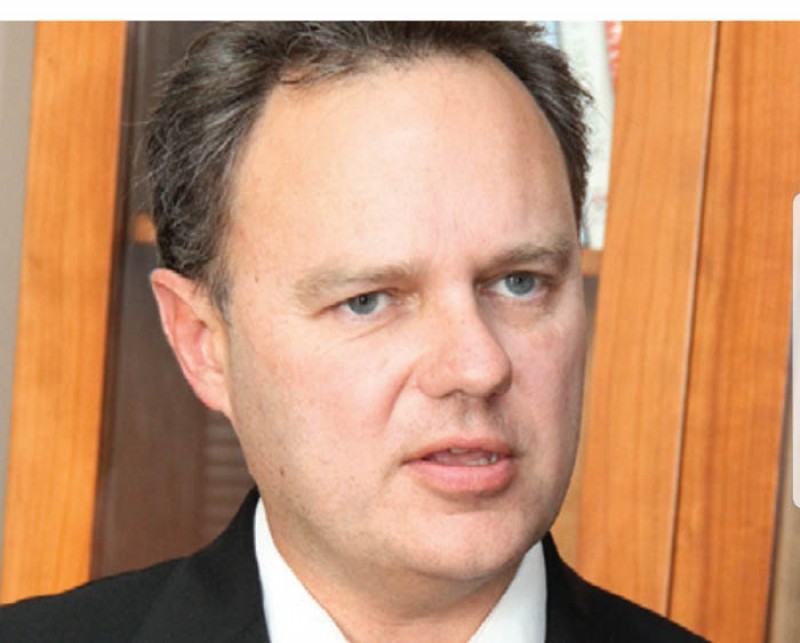Chain store denies P150m CMB investment
Monkagedi Gaothobogwe | Friday July 17, 2020 11:57


In its repeated statements and court filings in which it argued that it properly invested the P427 million allegedly misappropriated from the BPOPF, CMB has frequently cited an investment of P150 million in Kawena.
The asset management firm, which had an original P500 million investment mandate from BPOPF, says the funds in Kawena were invested for the establishment of a supermarket chain in Botswana.
Speaking to Mmegi via Zoom this week, Clementino Do Santos said the only intention was to set up a holding company in Botswana, and nothing more.
Dos Santos, who revealed he had been running a business serving Mozambican migrant mineworkers in South Africa for 30 years, said he was looking to transform the business into a full wholesale entity leveraging on the current footprint that existed across Southern Africa.
He told Mmegi that traditionally his line of business targeted the Mozambican migrant mineworkers, who would pay for various goods which would then be collected at Kawena outlets in Mozambique by families of the mineworkers.
However, with declining numbers of Mozambican mineworkers in South Africa, the business model had to change and previous shareholders who where in their mid 60s, did not want to make any further investments in the business and were looking to sell off their shares.
Dos Santos said when he met Tim Marsland, the majority CMB director and chief manager of the BPOPF’s funds, he made it clear to Marsland that Botswana already had established retailers which would be difficult to dislodge. Dos Santos said he also raised the fact that Botswana’s population was small, compared to Mozambique.
Dos Santos also revealed that the Botswana Opportunities Partnership (BOP), the vehicle used to invest the pension fund’s moneys, used about R32 million (about P22, 275,050.92 in current exchange rates) to buy out other shareholders and not P150 million.
Dos Santos told Mmegi that Marsland made him understand that the P150 million would be available to Kawena as operating capital, in drawdowns.
“That was not to be as even the first drawdown notice of R20 million was not honoured by Marsland,” said dos Santos.
“Instead, Kawena was given only R8 million for operations.”
While only R8 million was issued to Kawena for operations of the business, it surfaced recently at a CMB creditors’ meetings that P150 million was disbursed from BPOPF to buy shares at Kawena and set it up in Botswana as a competitive chain store in line with the likes of Choppies and Sefalana.
Dos Santos’ statement to the effect that there was no intention to set up in Botswana except as a holding company, raises more questions about the true nature of the Kawena investment.
It also emerged, at the creditors meeting, that more than P100 million out of the P150 million intended for Kawena was used by CMB for its own various investments unrelated to BPOPF mandate and drawdown notices.
These include P13.5 million allegedly invested at a Lot 226 property in Extension 5, a P13 million loan to YMH, the holding company for Yarona FM, a P1.5 million loan to Bona Life, another P1.5 million loan to Trudy Lodge, a P5 million loan to Lobatse Clay Works and a P20 million loan to Cell City.
CMB directors also loaned their own company in South Africa, Manor Squad, an amount of P33 million from the funds intended for Kawena.
Dos Santos however said he got in contact with the BPOPF as soon as he was notified that Marsland’s stake at Kawena would revert to the pension fund.
He said initially when he learnt about the liquidation of CMB, Marsland told him it was “all lies and I should just ignore it”.
Meanwhile, on May 29, 2019, CMB director and CEO, Rapula Okaile, accompanied by his lawyer Gabriel Kanjabanga, deposed an affidavit to the Directorate on Corruption and Economic Crime (DCEC) boss, Joseph Mathambo amongst others, asserting that P150 million had been duly invested at Kawena for purposes of buying 60% shareholding.
Mmegi also later ran a story based on these developments, reporting that CMB had shown the investigators all the missing BPOPF funds.
In the same affidavit to DCEC, the CMB CEO claimed that CMB had invested P63, 250, 000, apparently of its own money in various entities taking the total investments made to over P513 million, against the P477 million issued to them by the BPOPF.
Okaile and his lawyer also told the DCEC that the Kawena investment of P150 million had risen in value to P180 million.
